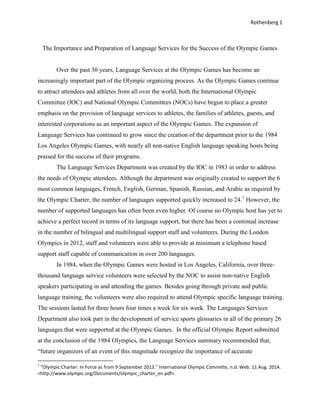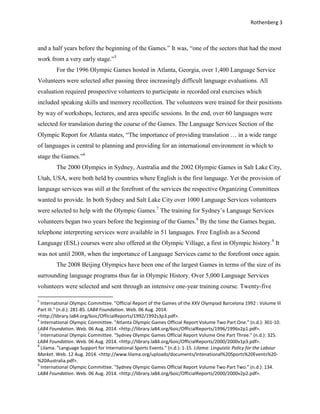The document discusses the increasing importance of language services at the Olympic Games over the past 30 years. It outlines the growth of language services provided at various host cities, from Los Angeles in 1984 providing support in 26 languages with over 3,000 volunteers, to Beijing in 2008 supporting 25 languages with over 5,000 volunteers who underwent a year of intensive training. It also discusses how host cities like Seoul in 1988, Barcelona in 1992, and Vancouver in 2010 developed rigorous selection and training processes for their thousands of language services volunteers to ensure non-native speakers had support at the Games.





